- Prostate cancer is a cancer of the epithelium of the prostate gland-an organ of the male reproductive system, located below the bladder and in front of the rectum.
- It is defined by an abnormal proliferation of the cells Of the prostate gland epithelium) which have an abnormal tendency to break away from the parent tissue, spread to nearby (such as bladder, rectum, pelvic floor, pol lymph nodes, etc.) or distant sites (mostly bones, also lungs, liver, etc.) having an overall weakening and destructive effect on the body.
- It usually occurs in older men.
Prostate Cancer Treatment in Pune - Dr. Hiralal Chaudhari
What is prostate cancer?
Current burden in India
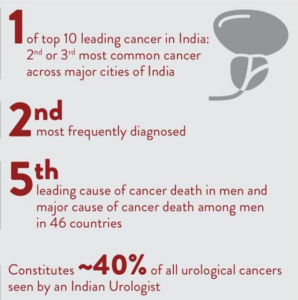
Outcomes (End results) in prostate cancer as per the extent of its spread in the body and further progression
Broad classification of prostate cancer as per the extent of spread through the patient’s body
Localized Prostate Cancer
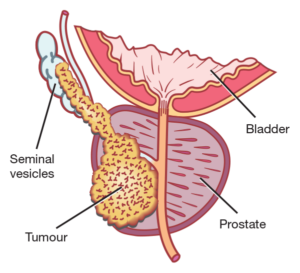
The cancer is confined within the prostatic capsule – in one or both lobes of the prostate gland.
Locally Advanced Prostate Cancer
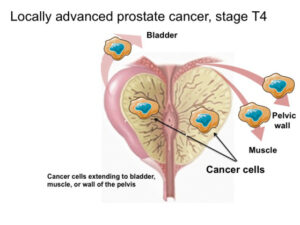
Cancer breaches the prostatic capsule and invades adjacent organs such as the bladder neck, seminal vesicle, rectum, adjacent muscles, pelvic wall, and/or lymph nodes after breaking away from the prostate gland.
Metastatic Prostate Cancer
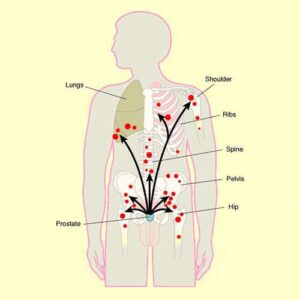
Cancer invades distant organs such as bones (spine, long bones, etc.), lungs, liver, etc. after breaking away from the prostate gland and spreading via the bloodstream. Prostate cancer has a strong tendency to metastasize to the bones.
Locally advanced prostate cancer and metastatic prostate cancer together are called advanced prostate cancer.
The picture of the disease stage at the time of presentation to a doctor in India
Stage-wise distribution of prostate cancer cases – An Indian Study
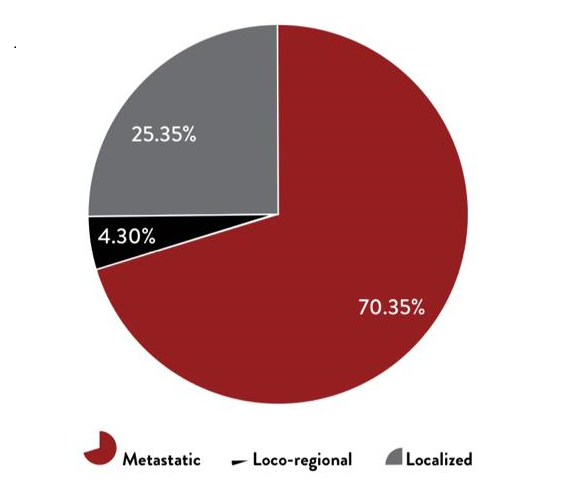
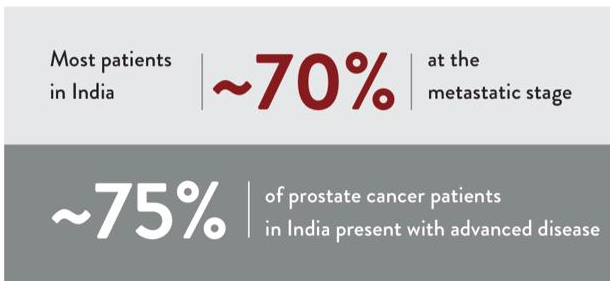
What causes prostate cancer and what drives its progression?
The process of prostate cancer growth and spread can be visualized as a process of 2 interdependent steps
Initiation of cancer (Also called carcinogenesis)
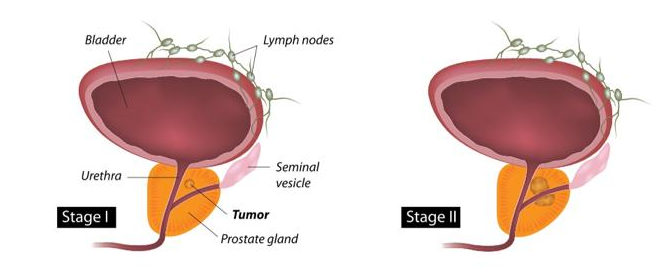
This could be spontaneous or due to a genetic predisposition (i.e. tendency) on account of:
This is because of damage to or mutation of the DNA inside the nucleus of prostate gland epithelial cell(s).
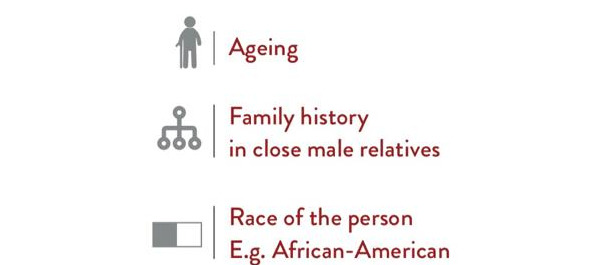
Further growth and spread of prostate cancer
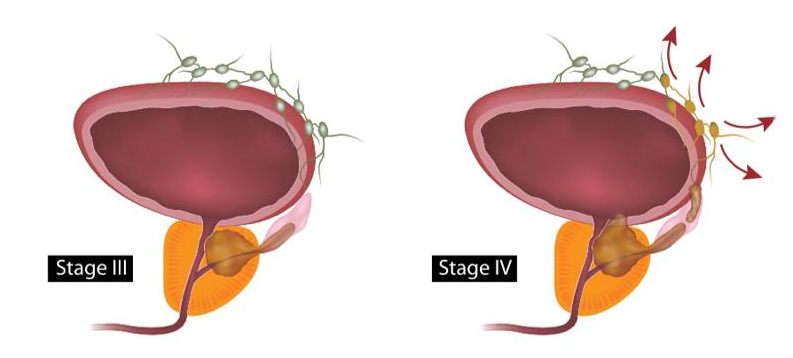
Once initiated, the growth and spread of cancer cells are driven or promoted by the action of the male sex hormones called androgens.
This is natural because these cells are part of the male reproductive system whose structure and function is always supported by androgens – the main testosterone
The correct medical or scientific term for this process is “Androgen Receptor or AR signaling”. This is because though testosterone, which is basically secreted by the testes (90% – 95%) and some other glands (adrenal glands: 5% – 10%), it ultimately needs to bind to the androgen receptor (located inside the prostate cancer cells) to carry out its activities.
